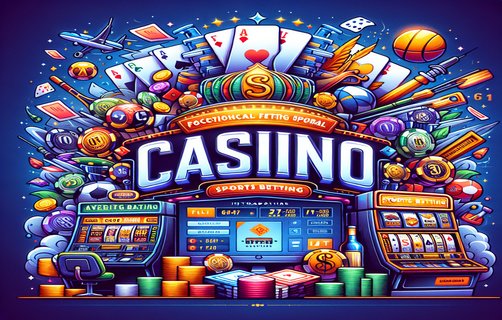The Ethical Landscape of Modern Gaming: Navigating Loyalty Rewards, Risk, and Control
In the ever-evolving realm of online gaming, particularly in the burgeoning landscape of casinos, players are constantly seeking not only entertainment but also strategies that align with their personal values and lifestyles. This exploration into the ethical considerations surrounding various gaming practices reveals the delicate balance between enjoyment and prudent decision-making.
Loyalty rewards have become a cornerstone of modern casino strategies, incentivizing players to return by offering points, cash-back offers, and bonus games. On one hand, these rewards can be a positive reinforcement, enhancing player engagement and satisfaction. They encourage loyalty and foster a sense of community among players. However, one must ponder the moral implications of these rewards: do they exploit vulnerabilities in a player's psychology, nudging them towards more frequent gambling habits? As we delve into this topic, we must question whether the benefits outweigh the potential risks.
When considering Blackjack tournaments, we encounter another layer of complexity. These tournaments can offer a thrilling competitive atmosphere, appealing to players who enjoy skill-based games. Yet, they can also heighten the stakes, pushing individuals to wager more than they initially intended. The ethical dilemma rests in the nature of competition: should games designed for fun and skill inadvertently encourage reckless financial behavior? The balance between competition and caution is a recurring theme in discussions about the integrity of gaming.

Game speed is another critical factor that merits reflection. Rapidly paced games can provide instantaneous gratification, which may be appealing yet perilous. A player’s ability to make quick decisions under pressure can often lead to impulsive choices that ignore responsible gaming practices. The core of the moral discussion here lies in the need for balance: how can casinos cater to players' desires for speed and excitement while simultaneously promoting safe gaming environments?
Central to these discussions is the notion of risk tolerance, which varies greatly across individuals. While some players embrace high-stakes environments, others may find themselves paralyzed by the fear of loss. Understanding one’s own risk tolerance is crucial in maintaining a healthy relationship with gambling. Casinos, in their quest for profit, must consider their ethical obligations to educate players about risk and encourage self-awareness.

In tandem with these elements, SEO for casinos has emerged as a tool that influences player behavior by driving traffic through targeted marketing strategies. The ethical challenge is ensuring that information presented is not misleading and accurately reflects the risks associated with gambling. This responsibility highlights the importance of transparency within the industry, ensuring that players make informed choices.
Automatic withdrawals present another ethical consideration. While convenience is key for many players, it can also lead to the temptation to spend without adequate reflection. Coupled with this is the necessity for tilt control methods, which aim to manage emotional responses to gaming. Casinos bear a moral duty to provide these methods to promote mental well-being and to minimize the impact of negative emotional states on player behavior.
Ultimately, modern gaming brings forth an intricate tapestry of ethical dilemmas. As players navigate the world of loyalty rewards, tournaments, and game dynamics, the conversation must center on fostering environments that respect individual choices and promote responsible gaming. This balance is crucial as we strive to make the gaming experience not only enjoyable but also ethically sound.
